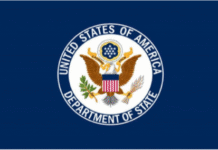
A tribunal in Dhaka, which is holding the trial of Al-Badr leaders Chowdhury Mueen Uddin and Ashrafuzzaman Khan for their alleged wartime offences, will deliver its verdict on November 3.
Mueen and Ashraf, who are now on the run, are facing 11 charges for allegedly killing nine Dhaka University teachers, six eminent journalists and three physicians in the last week of the nine-month Liberation War in 1971.
Justice Obaidul Hassan, chairman of the International Crimes Tribunal-2, fixed the date today before starting the trial proceedings of another case filed against war crimes suspect Jamaat-e-Islami leader AKM Yusuf.
This is the second war crimes case in which the trial has been conducted in absentia.
Mueen is now living in London while Ashraf in New York.
The first war crimes case conducted in absentia was against expelled Jamaat-e-Islami member Abul Kalam Azad. He has been awarded the capital punishment.
The charges against the duo are related to abducting and killing of 18 intellectuals.
The victims were: Dhaka University teachers Prof Mofazzal Haider Choudhury, Prof Munier Chowdhury, Prof Giasuddin Ahmed, Prof Sirajul Haque Khan, Dr Abul Khayer, Dr Faizul Mohiuddin, Prof Rashidul Hasan, Prof Anwar Pasha, Prof Santosh Chandra Bhattacharyya, journalists Serajuddin Hossain, Syed Najmul Haque, ANM Golam Mostafa, Nizam Uddin Ahmed, Selina Pervin, Shahidullah Kaiser, and physicians Fazle Rabbee, Alim Chaudhury and Mohammad Martuza.
The investigation agency, designated to prove war crimes, started to probe the alleged crimes of the duo on September 25, 2011 and submitted its report to the prosecution on October 9, 2012.
On April 25 this year, the prosecution pressed 16 charges of war crimes against the accused.
The tribunal on May 27 decided to hold the trial in absentia and appointed two defence counsels for them. On June 25, the court framed 11 charges against them.
The prosecution produced 25 witnesses, including two investigation officers in the case, while the defence could not produce any as they “didn’t get cooperation from the accused family members and relatives.”
The prosecution and the defence placed their arguments in between September 23 and October31.
BACKGROUNDS OF MUEEN AND ASHRAF
Mueen, son of Delwar Hossain Chowdhury and Diljan Begum of Chandpur village in Dagonbhuiyan upazila of Feni district, was a student of Dhaka University (Bangla department) until the independence, according to the prosecution.
He was a staff reporter of daily Purbadesh and a central leader of Islami Chhatra Sangha, the then student wing of Jamaat-e-Islami, said the prosecution.
During the Liberation War, Mueen as the operation-in-charge of Al-Badr intellectual killing mission, was directly involved in the killings of the brightest children of the soil to cripple the soon-to-be-independent Bangladesh, alleged the prosecution.
After the war, he went to Pakistan and then to London where he has been the chairman of Tottenham Mosque, vice-chairman of National Health Service, and a director of Muslim spiritual care provision in the National Health Service, they said.
Ashraf alias Naeb Ali Khan, son of Ajahar Ali Khan and Roimunnesa of Chhotovatara village under Muksudpur upazila of Gopalganj district, was enrolled in Islamic studies of Dhaka University and obtained his Bachelor in Arts degree in 1970. He was a central leader of Islami Chhatra Sangha, according to the prosecution.
They said, during the war, Ashraf, who was also a member of Al-Badr high command, acted as the chief executor of the intellectual killing mission.
He had also served as the commander of Gazi Salahuddin Company of Al-Badr and directly took part in the planned killing, they alleged.
He was now in New York and had been serving as a member of Islami Circle of North America, according to the prosecution.
Source: The Daily Star









